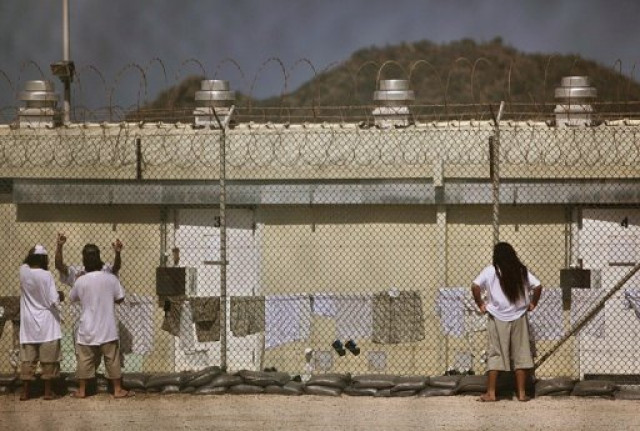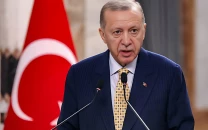Judge might split Guantanamo trial of 9-11 suspects
The defendants, are to appear at the Guantanamo Bay US naval base in Cuba on June 12 for the next pretrial hearing.

The defendants, including the professed mastermind of the hijacked plane attacks, Khalid Sheikh Mohammed, are to appear in court at the Guantanamo Bay US naval base in Cuba on June 12 for the next pretrial hearing in the death penalty case. Lawyers for two defendants have asked to delay the hearing because of scheduling conflicts while lawyers for another do not want a delay.
The judge, Army Colonel James Pohl, ordered prosecutors to file legal briefs by May 24 showing cause why the case should not be severed. He did not indicate how many separate trials he is considering.
"The judge already is seeing that with five different clients and five defense teams, scheduling is going to be very difficult," said James G. Connell III, an attorney for defendant Ali Abdul Aziz Ali, who is Mohammed's nephew.
The defendants are accused of charges that include conspiring with al Qaeda, attacking civilians in violation of the laws of war and murdering 2,976 people. It is the first multi-defendant prosecution in the Guantanamo tribunals and the various defense teams might pursue different strategies that could benefit one defendant at the expense of another.
"What is mitigating for some people might be aggravating for other people," Connell said.
Mohammed is the best known among the defendants and the self-described mastermind. The others - Ali, Yemeni captives Walid bin Attash and Ramzi Binalshibh and Saudi prisoner Mustafa Ahmed al Hawsawi - are accused of helping provide money and training for the hijackers.
Hawsawi's attorney, Navy Commander Walter Ruiz, said he had not decided whether to ask for a separate trial. "Any trial whether joint or severed needs to be before a properly constituted court and with properly resourced counsel (something which the government has decidedly failed to do at this juncture)," Ruiz said by email.




1725099588-0/BeFunky-(41)1725099588-0-208x130.webp)














COMMENTS
Comments are moderated and generally will be posted if they are on-topic and not abusive.
For more information, please see our Comments FAQ